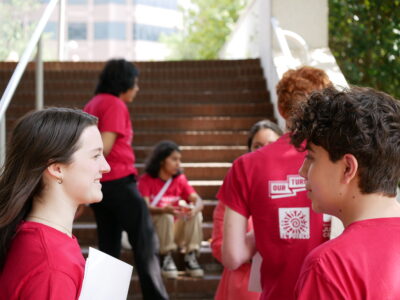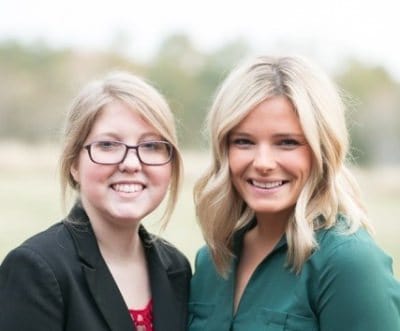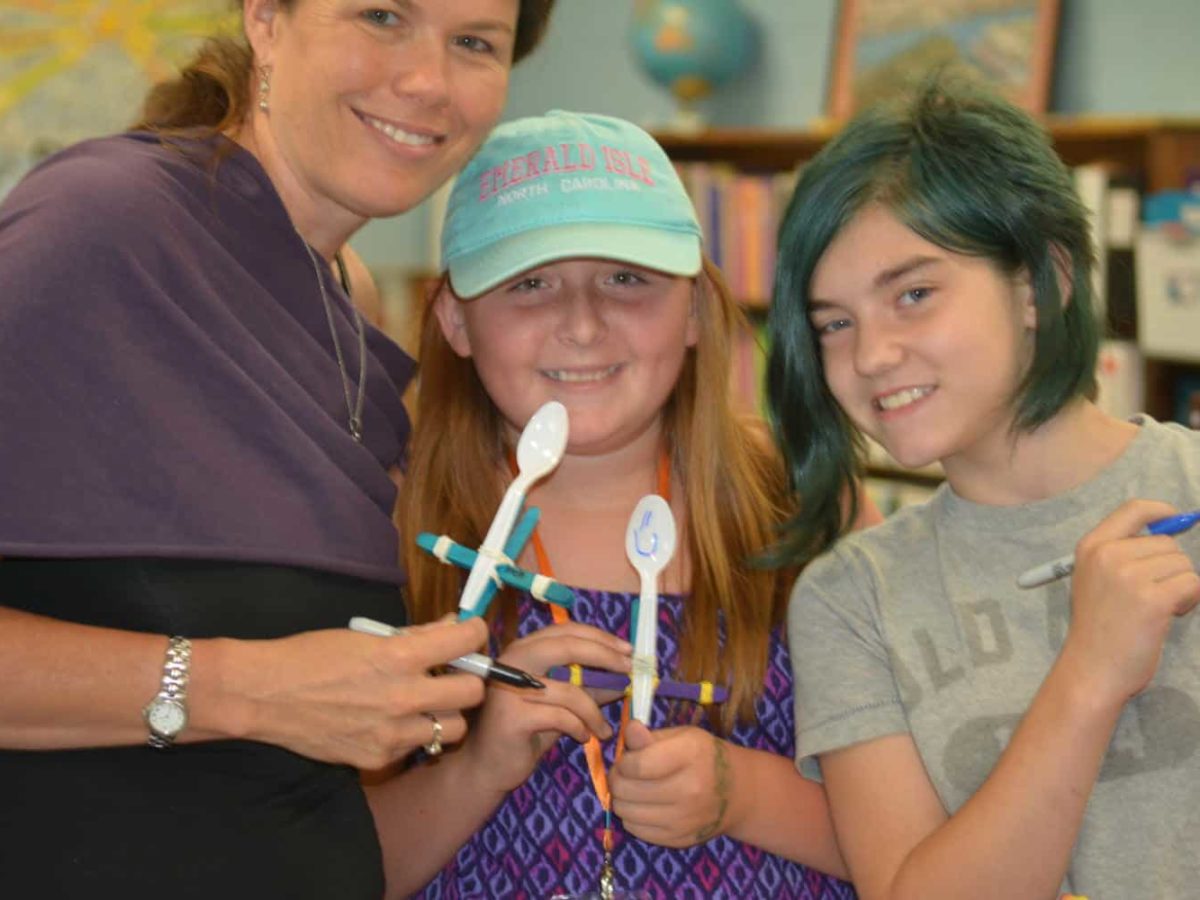
Two weeks ago, I was in rural Madison County, researching the amazing Partnership for Appalachian Girls’ Education, which explores the nexus of literacy and STEM to create 21st century opportunities for students. I met a beautiful, very smart middle school girl. In her story — from being removed from her family by DSS to being raised by her grandparents to understanding what it is like to have access to food and health care to discovering in school that she loves reading and science experiments — you can see all of the challenges and more importantly the opportunities our schools face.
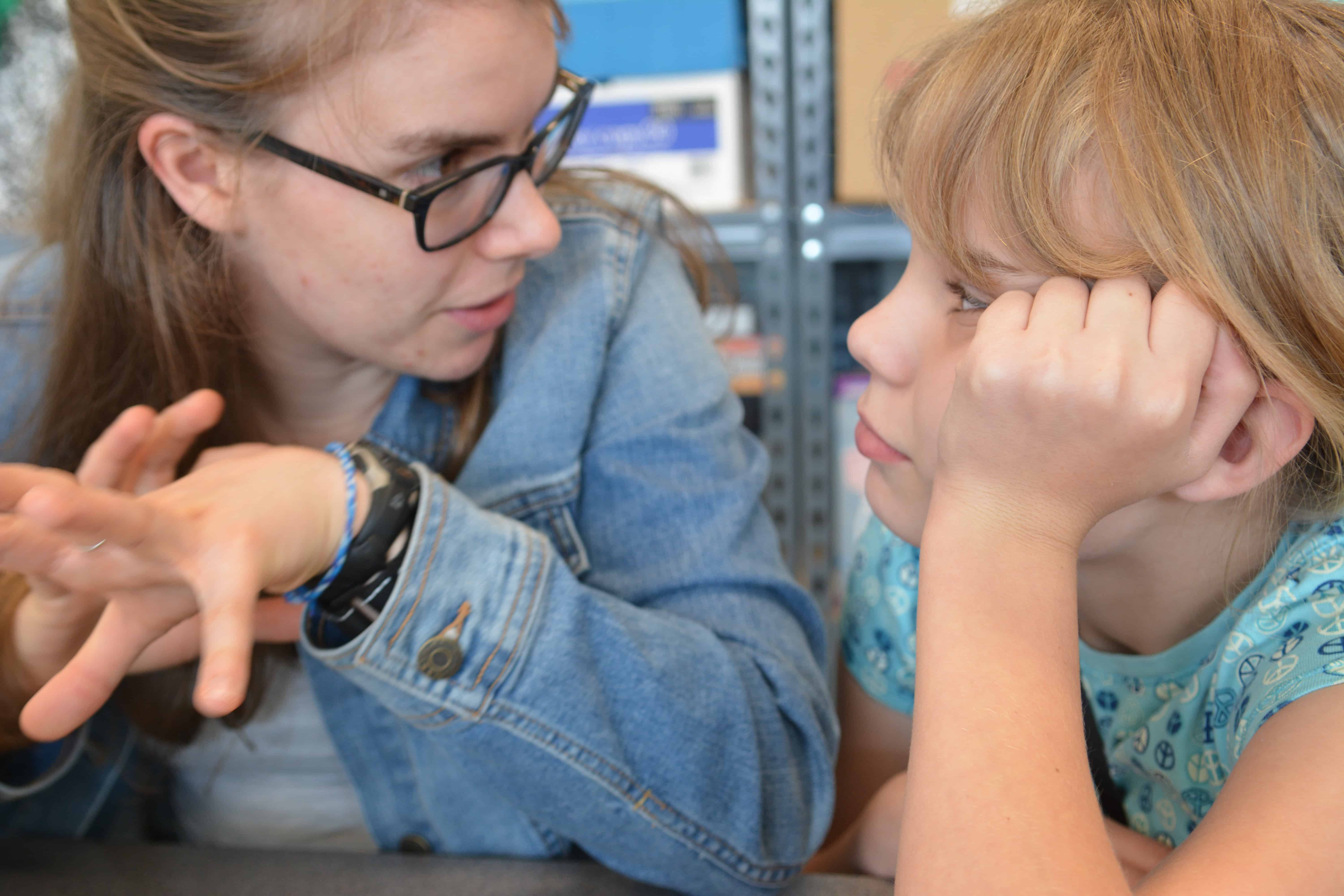
In our research on PAGE, you can see why we at EdNC love our work — finding the best practices across our state, lifting up the everyday heroes with the vision to conceive and implement big ideas, thinking about how to scale opportunities, and in the process creating access to a high-quality education for more, and hopefully someday, all of our students. Our work is all about hope.
We released our 2015-16 annual report last week. I am so proud of the work of the EdNC team and humbled by the support of our community.
Looking at the year ahead, we promise to continue our tradition of being scrappy so that as many dollars as possible fund our work, we promise to hold ourselves to the same standards of excellence we hold our schools, and we promise to continue to innovate, modeling what we know is necessary for our students to succeed in the 21st century.
That’s what we at EdNC want for all students — access to a high quality education that leads to a lifetime of opportunity. Across every line of difference you can imagine, it has been our experience in hundreds of meetings across our state, that’s the one thing we agree on — our children, their education, and the importance of their education to the future of North Carolina. Now there are differences of opinion about how to get there, but civic dialogue is the noise of democracy and one of our most celebrated and important traditions. The EdNC platform serves as your architecture of participation.
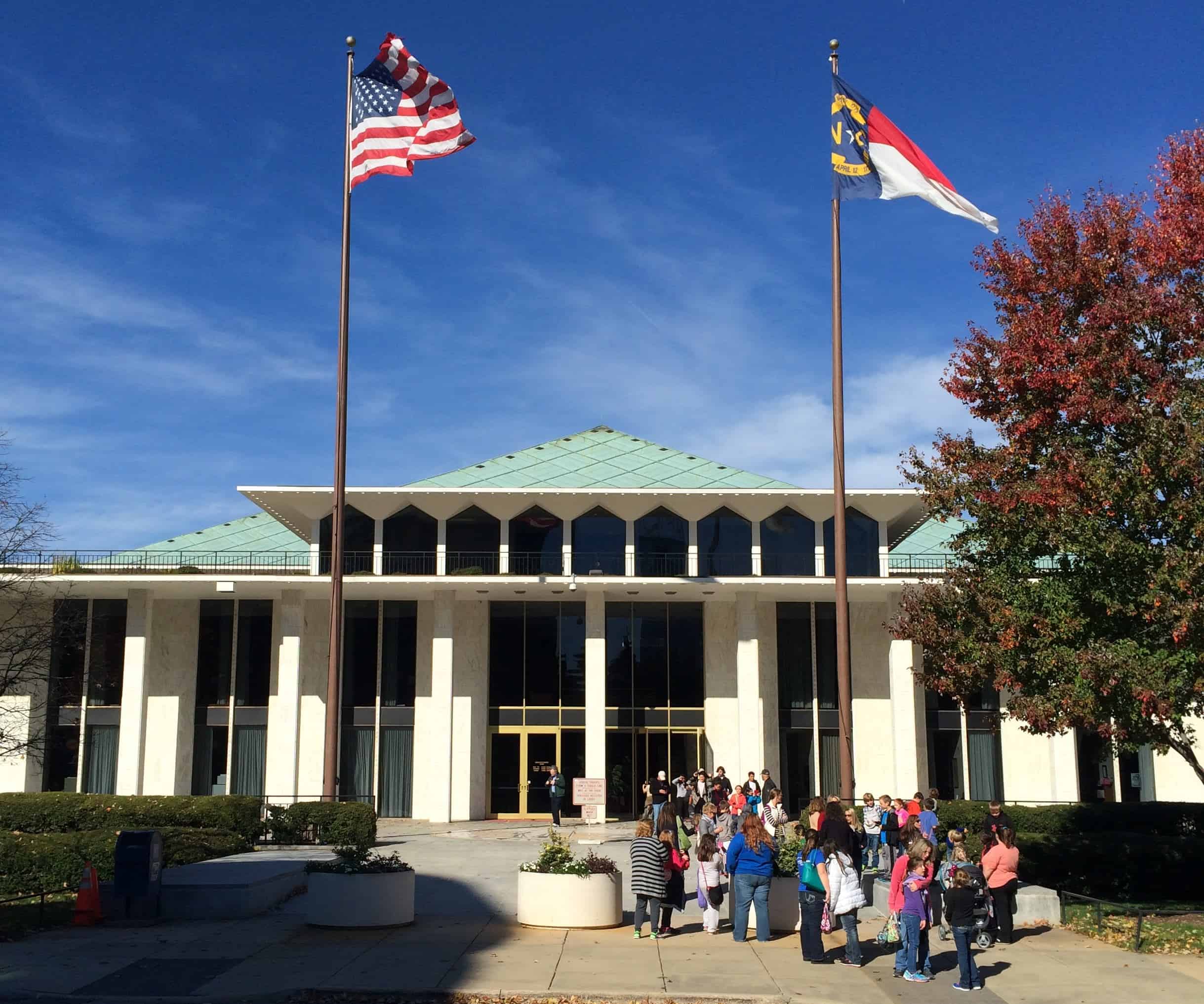
One thing is clear 18 months in:
The issues are more complicated and nuanced than even our headlines.
Think about all the leaders governing our public schools: the Governor, the Governor’s Education Cabinet, the legislature, the Superintendent of Public Instruction, the state board of education, 115 school boards and superintendents for 115 districts, the county commissions that fund those districts, and all of the charter schools. Who is in charge? Who is driving our education policy?
What are the problems with our teacher pipeline and how do we fix them?
How do we retain great superintendents, principals, and teachers?
Where are our children being educated — traditional public schools charter schools, private schools, and homeschools — and what is the shifting market share for each sector?
How do we educate children in poverty well? We know more today about educating children with adverse childhood experiences (or ACEs), about trauma sensitive learning and supportive learning environments, and now we have to get those best practices into our schools.
Citizens need to understand the state budget and education spending. About $8.7 billion state dollars will be spent on K-12 in 2016-17. Is it enough? Is it being spent on the right things?
Choice is here to stay. Last month was the 20th anniversary of our charter school law, which passed in 1996 with bipartisan support. I want you to think of choice more expansively. Public schools offer calendar choice, magnet choice, early colleges, and alternative schools, among lots of other options. By offering choice, public schools offer fit, and parents care about fit.
But with more choice must come more accountability. All of our students deserve access to a high-quality education across all school settings, including traditional public schools, for profit and nonprofit charter schools, online charter schools, vouchers being used to attend private schools, and homeschools.
You will hear more and more about swirl, and children coming in and out of the different types of school settings. What are the best practices to make make sure those transitions happen well for students and schools?
You are going to hear more about open enrollment — districts allowing students to cross boundaries.
You are going to hear more about testing — North Carolina is conducting a pilot right now on a new system of testing — and more about opt-out — parent’s choosing for their students not to be tested.
You are going to hear more about ESSA — the new federal Every Student Succeeds Act. This replaces No Child Left Behind.
I hope you also will begin to hear more about hope. The hope we see in the eyes of students, teachers, and policymakers.
A superintendent who is putting washers and dryers in his schools so that parents can come and use them while they volunteer in classes.
Classrooms of Tomorrow, which are changing the industrial model of sit and get education where kids come in, are told where to go, what to do, how to do it, to a model that empowers students to drive their own learning.
Professors from UNC-Charlotte going into school districts to provide a master’s education to teachers custom-tailored for the schools they are teaching in and the students they serve.
It is hope that compels stakeholders across our state to try and do great things for our students.

EdNC operates much more like a small, daily newspaper than a nonprofit. We go to bed late and get up early.
We don’t have offices, but we have used a tool called Slack to create our own virtual newsroom.
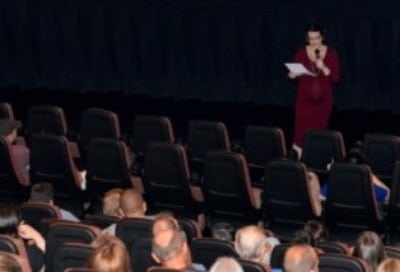
Alisa Herr continues to serve as our chief technical officer. She amazes us with her ongoing design of our platform, our content, and our data dashboard. Currently she is building an online voting platform for students to use to cast votes in the November elections as part of their civics class.
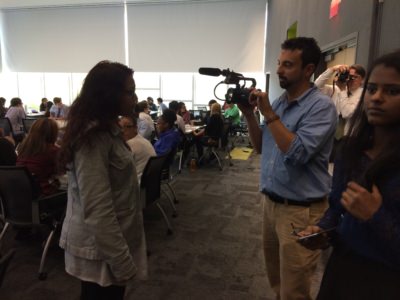
Alex Granados reminds us that if we are going to work this hard we need to have fun along the way. He calls me every morning as he walks his dog, Maggie, to chart the day ahead, often singing his thoughts to me. Alex will be serving as our news director going forward, putting his amazing work ethic to good use.

Todd Brantley is our thoughtful director of policy and research. As he does so well, Todd will be spotlighting the everyday heroes in Winston-Salem/Forsyth County this year so the rest of the state can learn more about the innovative ways one metro community is working together to create a brighter future for all children. He will also be exploring the nexus of literacy and STEM in 10 rural counties in Eastern North Carolina. He is always on the lookout for best practices in education.
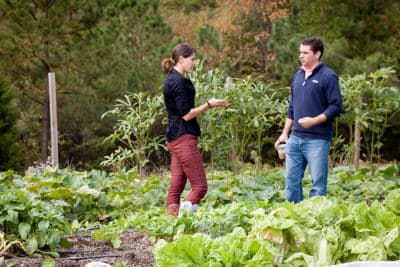
After a year of proving that he could work and thrive in the center space, Nation Hahn is joining the staff of EdNC as our chief growth officer. Nation is the big thinker and change agent behind EdNC’s reach and impact strategy, and he envisions a world in the not too distant future where websites are obsolete and content is distributed via channels. Nation will continue his work on the nexus of poverty, health care, and education. He is working on a food symposium at UNC-Chapel Hill in September that promises to change the way we think about the role of food and education for our students.
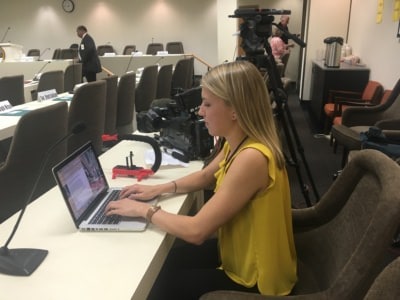
Liz Bell is our rock star rookie reporter just out of UNC’s J School. We knew Liz was for us, when for her job interview, we invited her to come interview four governors cold and she didn’t blink. Check out her use of Storify to preserve the history of how education legislation is passed. Also don’t miss her use of live streaming from the legislature on important bills.
EdNC is honored to host Molly Osborne, a graduate student at the Harvard Kennedy School of Government, for the summer. Molly is studying homeschools in North Carolina and across the nation. Nate Barilich, a teacher in Wake County, continues to pioneer the development of a public policy boot camp for students.
EdNC strives to have a flat organizational structure relative to education, experience, and responsibility. Don’t read too much into our titles. Our team of peer experts aspire to be servant leaders.
EdNC’s community
EdNC recently contracted with Impact Thread, a company owned by English Sall (a member of the EdNC Board of Directors) and Emery Clayton, to conduct the first survey of our community.
When asked if participants considered EdNC as a reliable resource to keep them updated on education in North Carolina, 51.35 percent said they strongly agree and another 23.42 percent said they agree.
Of respondents, 67.87 percent said they strongly agree or agree that EdNC provides a comprehensive and neutral view of what’s happening in education across North Carolina, 61.47 percent take the time to send links and information from our site to friends and family, 73.18 percent have referred someone to our site, and 65.12 percent spend 1-3 hours per week at EdNC.
“Only 9.6 percent of respondents said that they have encountered a similar resource to EdNC. This is key,” says Sall.
“This shows us that the attraction and attachment to EdNC is due to its uniqueness. There is a special sauce in this model that is imperative in attracting and retaining readership.”
Our job continues to be to inform the conversation about education across North Carolina with data, news, stories, information, analysis, and research. Your job is to use the architecture of participation we have built at EdNC to engage in the noise of democracy on these issues we all care so deeply about.
Thank you.
Recommended reading
